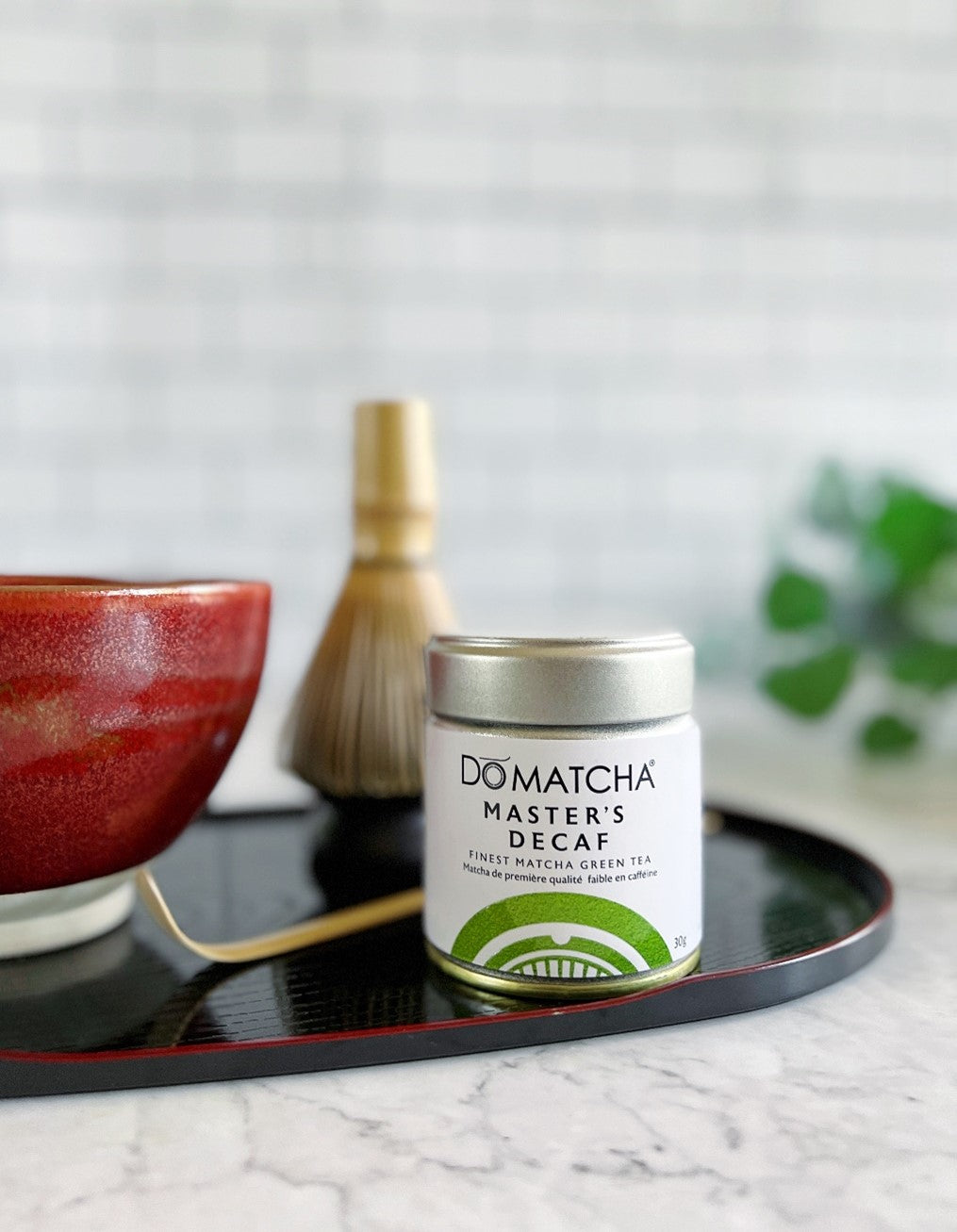
Decaf Matcha: How and Why We Make it
Share
Many teas, including matcha, contain caffeine. Black and green tea are amongst the highest in caffeine content. As people age, there are several reasons why they might be cautioning away from caffeine. Many of such are either health-related, sleep-related or both. We put a lot of consideration into this fact, so we wanted to bring matcha to people who couldn’t endure much caffeine. Over four years, Domatcha and their partners in Japan worked on developing a proprietary method for decaf matcha. We now proudly carry Master’s Decaf, which is made from tea leaves from Ujishi. Our decaf matcha tea undergoes a clean decaffeination process that involves only water.
Why Decaffeinated Matcha Tea is not Caffeine Free

Decaffeinating tea doesn’t remove 100% of its caffeine. Decaffeinated tea, like Domatcha Master’s Decaf, still contains trace levels of caffeine, around 6mg per serving. However, this is a fraction of what regular matcha contains (25-25mg/g and coffee (80-120mg/g). Meanwhile, caffeine-free teas naturally don’t have caffeine, like mint, chamomile, rooibos..etc.
Who is Decaf Matcha Tea Suitable For?
The amount of caffeine your body can tolerate depends on a number of factors like genetics, weight, age, and stress levels. Caffeine is not recommended for young kids or pregnant women, as it may have developmental hindrances.
The recommended daily amount of caffeine is under 400mg (around 4 cups of coffee). However, individuals who experience chronic stress or suffer from insomnia, may find that caffeine exacerbates their issues.
Decaf matcha is suitable for:
- Seniors
- Caffeine-sensitive individuals.
- Individuals with sleep concerns or insomniac.
- Individuals experiencing high levels of stress in their daily lives.
- Individuals looking to cut back on caffeine.
- Individuals suffering from anxiety or nervousness.
- Individuals who wish to drink tea before bedtime.
- Individuals who drink multiple cups of matcha a day.
Can Pregnant or Breastfeeding Women Drink Master’s Decaf
It is recommended that you consult with a physician before going on any type of health protocol. Because decaf matcha contains such trace levels of caffeine, consuming it in moderation should have no adverse impact on pregnant or breastfeeding women.
Enjoy your Decaf Matcha with No Worries

It’s relieving to know that you can still reap the wonderful health benefits of matcha without caffeine, all without compromising the delicate yet robust flavour profile of matcha. Good quality matcha has a distinct vegetal flavour (remanence of seaweed), umami, and a bit of natural sweetness. It should never taste overly bitter or astringent. Pair decaf matcha with a nice treat for an afternoon pick-me-up, or as a meditative ritual first thing in the morning. Sip on it at nighttime with a good book and let your worries ease.
